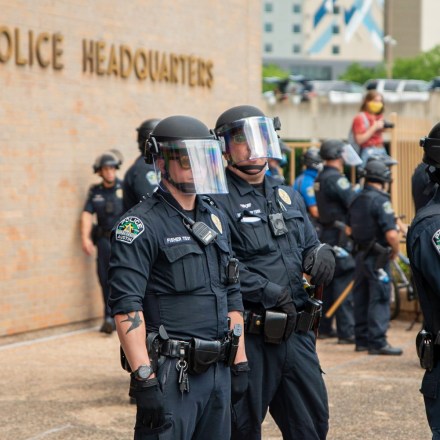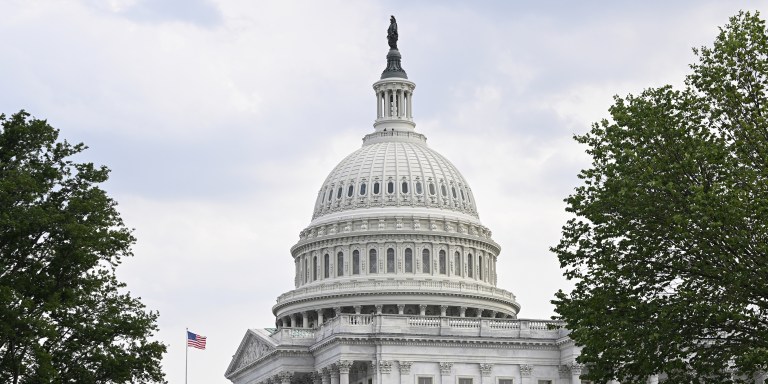Former Austin City Council Member Greg Casar is within striking distance of a first round knockout in his Democratic congressional primary on March 1, according to a new survey by Public Policy Polling. The poll, which surveyed 520 likely Democratic voters in Texas’s 35th District — stretching from Austin to San Antonio — from February 18 to 19, was paid for by the Working Families Party and Justice Democrats, both of which have endorsed Casar in the primary. United We Dream Action, a pro-immigrant organization, also chipped in for the poll.
The results put Casar at 42 percent, shy of the 50 needed to end the primary in the first round, but well ahead of his closest competitor, state Rep. Eddie Rodriguez, who sits at 13 percent. A third of voters in the poll remained undecided, meaning that if a quarter of those break Casar’s way, he should be able to win on March 1. A Casar poll from early December put the former council member up by 42-17 percent over Rodriguez. In the final week of the primary, Working Families Party and Justice Democrats are launching a new ad boosting Casar, aiming to end the contest in a single round.
New ad going up for Greg Casar in Texas's 35th, from Working Families Party and Justice Democrats. Polling has him within striking distance of a first round knockout next week. Story soon. pic.twitter.com/c098k9Lne4
— Ryan Grim (@ryangrim) February 22, 2022
If Casar comes in under 50 percent, a runoff will be held on May 24, giving outside money nearly two months to take down the frontrunner. Casar has the backing of Sen. Bernie Sanders, I-Vt., and Rep. Alexandria Ocasio-Cortez, D-N.Y., as well as more establishment figures like former gubernatorial candidate Wendy Davis, who backed Hillary Clinton for president, and the Texas AFL-CIO.
Casar was elected to Austin City Council in 2014, with a general background in activism and a specific focus on immigrant rights. He’s been a controversial figure on the council, a leading progressive who successfully championed reallocating some of the police budget to social services and clashing with the police union. An effort to overturn the move by the local GOP and the police union — lumping it in with other “defund the police” efforts across the country — was ultimately unsuccessful at the ballot, losing by more than 2-to-1.
Another high-profile effort Casar led was ultimately rejected by voters. Casar pushed for the city to lift its ban on the use of tents by homeless people in Austin, and as soon as the new law went into place, encampments sprang up around the city. A backlash ensued and voters overturned the law, banning tents again. Casar’s more moderate opponents have painted him as the poster child for Democratic excess, coming at a time of extreme self-doubt and finger-pointing among Democratic leaders.
Casar, a member of the Democratic Socialists of America, recently tangled with the group over his refusal to support a boycott of Israel over its ongoing and expanding occupation of Palestinian territory, and his pledge not to support cutting off U.S. military funding to the country. Rather than changing his pledge, Casar withdrew his request for the DSA’s endorsement.
The outside group Democratic Majority for Israel has pledged to spend big money to stop progressive candidates from winning primaries. In the wake of Casar’s pledge, DMFI has not endorsed against him — an example of the ways big money can influence politics not only by spending, but sometimes only with the threat of the spending. Last summer, DMFI pumped $2 million into Shontel Brown’s Democratic primary campaign against Nina Turner in Ohio, fueling a narrow, come-from-behind win.
Voters too have so far shown relatively little enthusiasm for Casar’s competitors. Rodriguez, his closest rival, serves in the Texas House of Representatives, but his campaign has largely failed to catch fire, with the survey showing him losing support since December. Rodriguez has raised roughly half as much money as Casar. Rebecca Viagrán, a former San Antonio city council member, has similarly not caught on. She sat at 9 percent in the poll shared with The Intercept Tuesday.
Along the border, more attention is being paid to the race between Rep. Henry Cuellar and insurgent Jessica Cisneros, who lost to Cuellar by 4 percentage points last cycle. Cuellar’s home was recently raided by the FBI as part of a probe into Azerbaijani corruption. In the wake of the raid, a bizarre bot network formed to rally to Cuellar’s defense.









